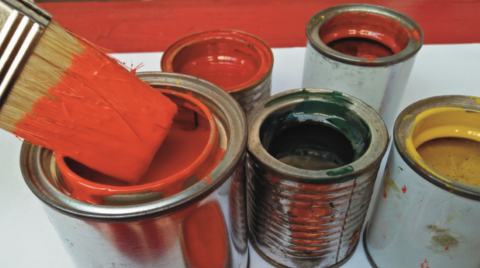Philippines beats 2020 phase-out deadline for lead-containing paints

https://asiapacificcoatingsjournal.com/news/philippines-beats-2020-phase-out-deadline-for-lead-containing-paints
The ILPPW, which will take place from October 25th until the 31st, is an initiative of the UN-backed Global Alliance to Eliminate Lead Paint with this year’s edition focusing on the need to accelerate progress towards the global phase out of lead paint through regulatory and legal measures.
“The local paint and coating industry, with strong encouragement from the government and the civil society, had beaten the phase-out deadline for lead paints as stipulated in the country’s lead paint regulation.
"This achievement will hugely help in preventing children’s and workers’ exposure to lead from paints,” said Thony Dizon, Chemical Safety Campaigner, EcoWaste Coalition
Under the Department of Environment and Natural Resources (DENR) Administrative Order 2013-24, or the Chemical Control Order for Lead and Lead Compounds, lead in architectural, decorative and household paints was phased out on January 1, 2017, while lead in industrial paints was phased out on January 1, 2020.
The promulgation of the said order had triggered an industry-wide removal of lead-based raw materials in paint production, which are previously used as pigment, drying accelerator or as corrosion protector, and their replacement with sound alternatives.
“The paint and coating industry has acquired competitive advantage by reformulating whole product lines to get rid of lead inputs in paint formulations.
"Some companies have even gone one step further by successfully obtaining third-party Lead Safe Paint® certification to assure consumers that their products do not pose lead-based paint hazards,” said Derrick Tan, President, Philippine Association of Paint Manufacturers (PAPM).
Dr Gelo Apostol, Assistant Professor at the Ateneo School of Medicine and Public Health, noted that “phasing out lead paints and addressing all other sources of lead poisoning in the environment are absolutely needed to protect Filipino children from the adverse health and economics impacts of lead exposure, such as reduced learning abilities, poor school performance, behavioural problems and decreased productivity."
He added, "there is no acceptable blood level for lead."
As there is no level of exposure to lead that is without harmful effect, the EcoWaste Coalition urged the government, industry and civil society to sustain meaningful multi-stakeholders collaboration to build a lead-safe environment for all children, including babies in the womb.
“Just because our nation has phased out lead paints does not mean we can rest on our laurels,” the group pointed out.
“There is still so much to be done to ensure that our children are protected against preventable sources of lead exposure that can irreparably affect their health and future.”
Globally, governments need to quickly adopt lead paint standards and regulations limiting total lead content to not more than 90ppm (the limit recommended under the UN Model Law and Guidance on Regulating Lead paint), noting that the manufacture of lead paint is still allowed in more than 60% of countries.
Other countries need to enforce or strengthen their lead paint laws so that non-compliant paints and consumer products, particularly school supplies, toys and childcare articles, are not smuggled into the Philippines and bought by unsuspecting consumers, the EcoWaste Coalition said.
The group recalled its recent discovery of 37 imported aerosol or spray paint products for general use that were found to contain high concentrations of lead up to 82,100ppm as per laboratory analyses.
The distribution and sale of these non-compliant products were subsequently banned by health authorities.
Nationally, local governments, real estate developers, home builders and other major paint consumers need to adopt a lead safe paint procurement policy to ensure that only compliant paints are purchased and used, the group said.
Also, the national government needs to draw up guidelines on lead paint abatement to minimize lead dust pollution, especially during renovation activities at home, school and other places, the group further suggested.
The DENR, PAPM, Pacific Paint (Boysen) Philippines, Inc. and the EcoWaste Coalition are partners of the Global Alliance to Eliminate Lead Paint, a voluntary partnership led by the United Nations Environment Programme and the World Health Organization.
